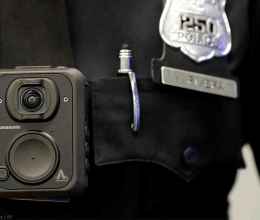By Carmen Iguina and Zara Lockshin
By the time Credy Madrid Calderon fled Honduras and sought asylum in the United States, he had been threatened, shot at and severely beaten by local gangs. Arriving in the United States, however, did not mean sanctuary for Credy. Instead of being reunited with his wife and children, all U.S. citizens, Credy found himself in an immigration jail. He waited there for months, uncertain of whether he would even get the chance to explain to a judge why he faced certain death if he was sent back to Honduras.
Like thousands of other asylum seekers, Credy was waiting for an asylum officer to complete his “reasonable fear determination” so that he could move forward with his case. This screening process applies to asylum seekers, like Credy, who have been deported and return to the United States seeking protection. Immigration laws require that these “reasonable fear determinations” be completed within 10 days. But immigration officials routinely ignored the 10-day requirement, taking an average of approximately four months in 2013 to complete a reasonable fear determination, and much longer in some parts of the country.
Asylum-seekers such as Credy were stuck in legal limbo and losing hope. Incarcerated in immigration jails, many abandoned their claims and decided to face persecution back home rather than languish behind bars in this country, often in deplorable conditions. So the ACLU of Southern California, along with the ACLU of Northern California, the National Immigrant Justice Center and the law firm of Reed Smith LLP, filed a nation-wide class-action lawsuit to force the government to follow the law, end the unreasonable and unjustifiable delays of asylum seekers’ cases, and make sure their claims were processed in a timely manner.
Those unjustifiable delays will hopefully end today under a settlement reached with Immigration and Customs Enforcement and U.S. Citizenship and Immigration Services, the federal agencies in charge of processing these asylum seekers’ claims. Under the settlement, individuals who express a fear of persecution in their home countries and who must go through the “reasonable fear determination” process will have their case referred to USCIS within an average of five days, and USCIS officials must decide whether that fear is reasonable within an average of 10 days from the time the case is referred.
People seeking asylum have suffered enough trauma. The new settlement assures them that the government will not compound their suffering by delaying review of their claims for asylum in this country, where they seek refuge and safety.
Carmen Iguina is staff attorney at the ACLU of Southern California. Zara Lockshin works in the communications department at the ACLU of Southern California. Follow ACLU_SoCal.


